Coronavirus is a warning: if we don’t take care of nature, it won’t take care of us
This is far from the first pandemic to ravage humanity, writes Enis Yucekoralp, nor will it be the last if we persist in ignoring nature’s exhortations

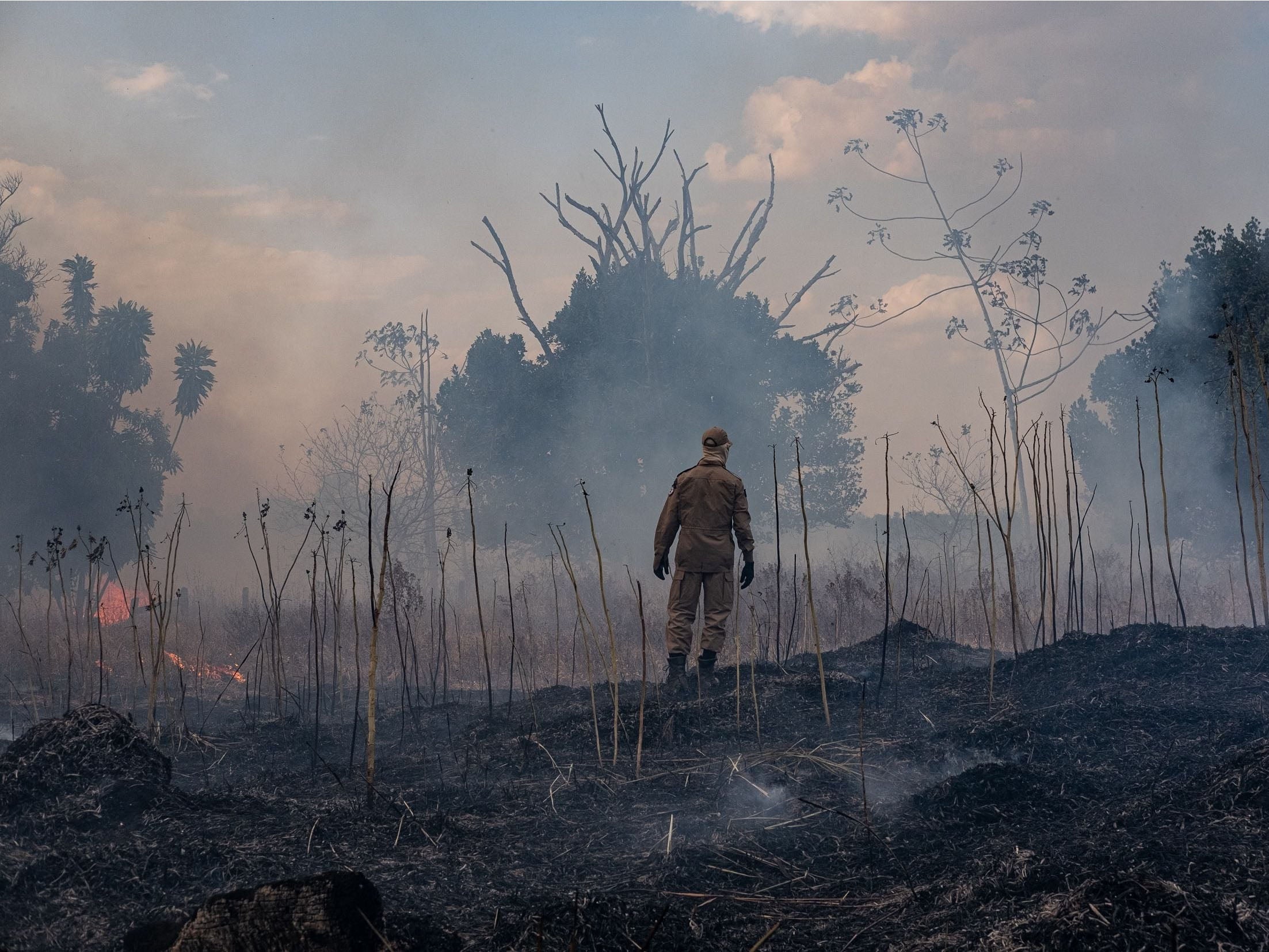
Epidemiology is an environmental issue. “Any emerging disease in the last 30 or 40 years has come about as a result of encroachment into wild lands and changes in demography,” claimed disease ecologist and president of EcoHealth Dr Peter Daszak in 2012.
The devastating emergence of Covid-19 seems to be emblematic of the causal relationship between emerging infectious diseases and our destruction of the natural environment’s ecosystems.
Indeed, disruptive human behaviour is nearly always the cause of animal-to-human pathogenic spillover (zoonosis). The fact that an unprecedented 75 per cent of all emerging infectious diseases are zoonotic highlights the severity of the situation.
This pandemic, too, is thought to be natural and animal in origin and research heavily indicates a zoonotic origin. Several hypotheses have suggested a pathogenic spillover from bats or pangolins to humans. While wet markets selling produce, seafood and live animals in Wuhan – the populous capital of central China’s Hubei province – are widely considered to be the main direct source of the outbreak.
The widespread demand for exotic species and wild meat in wet markets throughout Asia has resulted in the intrusive destruction of natural animal habitats. Brought to market from the wild and kept in confined, often unhygienic, conditions, these wet markets are breeding grounds for pathogens.
Dr Samuel Myers, principal research scientist at Harvard’s Department of Environmental Health and director of the Planetary Health Alliance, told The Independent: “Human incursions into wildlife habitat bring people into closer proximity with wildlife populations.
“What we know is that other animals are an enormous reservoir of pathogens, many of which we haven’t yet been exposed to. The HIV epidemic and Ebola were thought to have emerged from bushmeat hunting. Mers and Sars came out of live animal wet markets.
“At the live markets in Wuhan, for example, there was an extraordinary number of exotic species alive in cages, all in proximity to each other and to humans in a way that you would never find in the natural world. It’s a combination of the size of the human ecological footprint and globalisation. Once a pathogen has made that jump from animals to humans, it has the capacity to spread around the globe very quickly with air travel.”
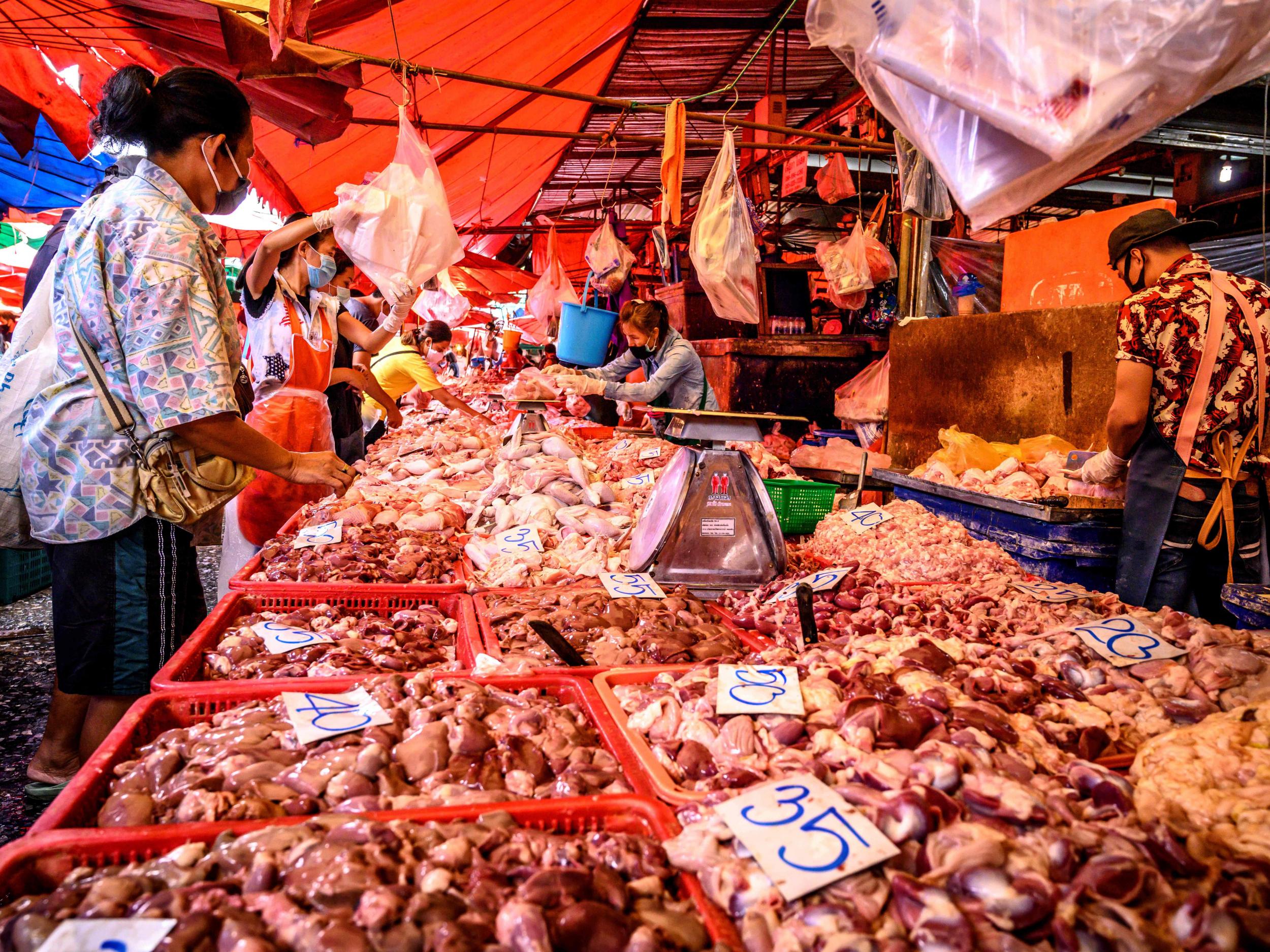
In a matter of weeks, the world has been thrown into existential turmoil by Covid-19. Globalised panic has now converged with a nebulous anxiety over the future as the death toll mounts under lockdown. At the time of writing, the pandemic has claimed more than 170,000 lives with almost 2.5 million cases confirmed globally.
To be unequivocal, everything seems to point to humanity’s decimation and commodification of biodiverse ecosystems as the germ of this pandemic and others like it. The persistent disintegration of wild habitats for monetary gain has brought us closer than ever to disease-harbouring organisms.
The truth is that the next pandemic could come from a wet market, a pig farm, or someone walking in the wrong forest at the wrong time. And the more we encroach on ecosystems in all of these ways, the more spillover risk there is bound to be
With depressing prescience, a National Geographic article from November 2019 spoke about the impact of decades of deforestation on the rise of infectious diseases in humans. It corroborates this as an issue which spans nearly a century of ecological vandalism.
While conditions at a wet market have been cited as the originary site of the virus, the complexities of epidemiology mean that there is perhaps a network of causes rather than the Huanan Seafood Wholesale Market representing one singular spark.
“I haven’t seen any evidence that convinces me wet markets or ‘exotic’ animal consumption is a unique driver for these kinds of outbreaks,” suggests Emma Glennon, a researcher specialising in emerging infectious disease dynamics and bat-borne zoonoses at the University of Cambridge.
“Many spillovers happen from animals we would never talk about in the same way, including pigs and poultry. I think the focus on wet markets is usually a distraction, one that creates a false sense of security that it couldn’t happen here.
“The truth is that the next pandemic could come from a wet market, a pig farm, or someone walking in the wrong forest at the wrong time. And the more we encroach on ecosystems in all of these ways, the more spillover risk there is bound to be.”
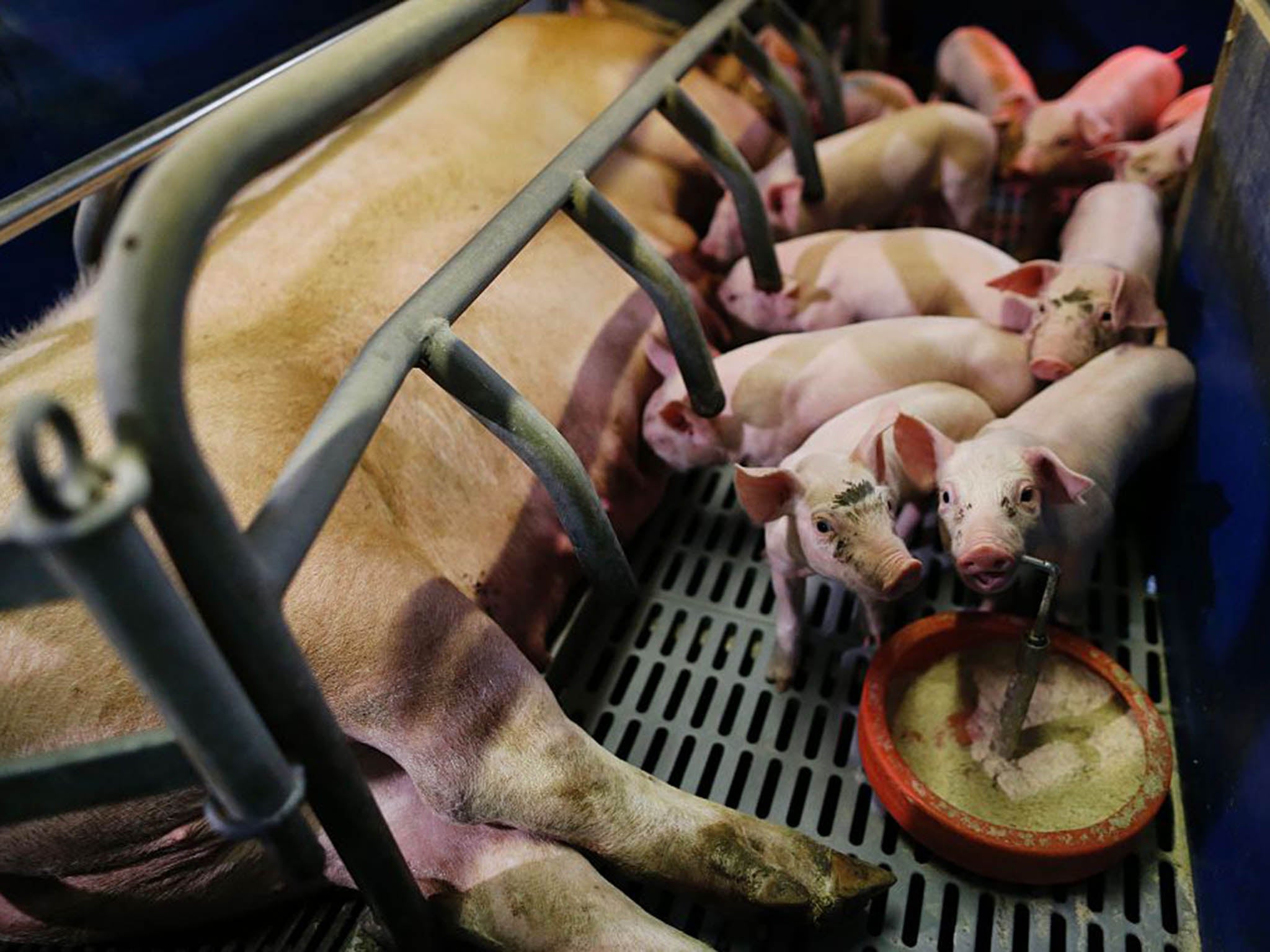
Human encroachment is facilitating the incubatory conditions for the spread of viral diseases; a rupture of the natural barriers between humans and host animals. Ironically, we also depend on much of these forested regions for the medicinal plants and herbs of the world’s pharmacopeia.
The world’s ecosystems are a mass of heterogeneous fauna and flora; in this diversity of animals, wild plants and bacteria, there lies a repository of unique viruses, many of which reside harmlessly within wildlife.
But when we follow a hostile protocol within anthropocentrism and lay waste to natural habitats for resources and land, hunting and poaching wild animals, we risk exposure to these viruses and the subsequent human-to-human infection. The human body itself is a jungle of microbes.
Glennon, who is also a member of the Cambridge Infectious Diseases research centre, stated: “I’m not surprised that a new virus has emerged the way it has.
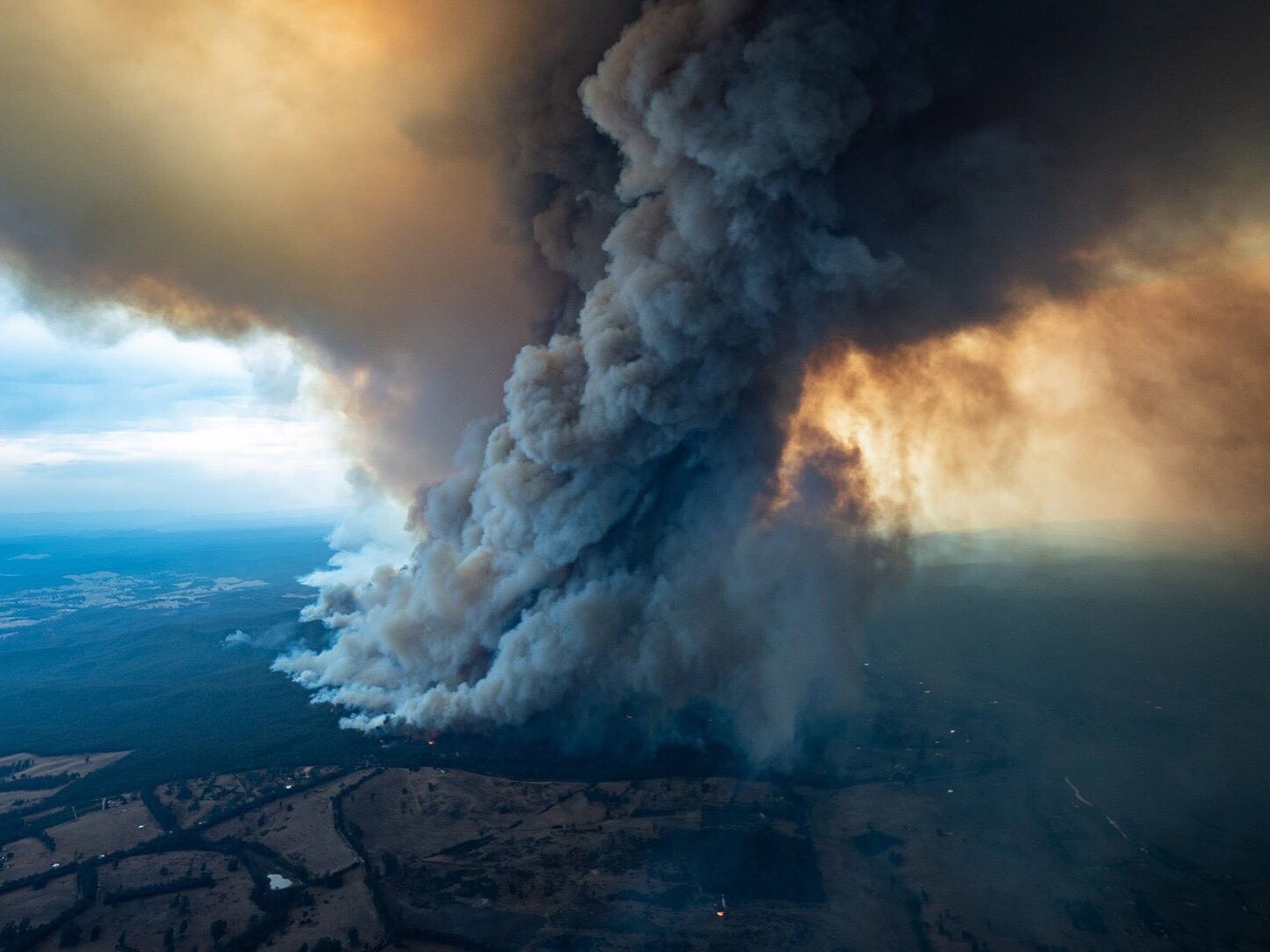
“Spillovers from wildlife to people happen all the time, often with important public health implications. In the Democratic Republic of the Congo, for example, nearly two years of an active Ebola outbreak have taken a huge direct and indirect toll.
“The way we prevent spillover events from turning into pandemics is to maintain strong health systems, where sick people can access diagnosis and care and public health systems have the funding to trace and isolate contacts as appropriate.
Human incursions into wildlife habitat bring people into closer proximity with wildlife populations. What we know is that other animals are an enormous reservoir of pathogens, many of which we haven’t yet been exposed to
“We can never know exactly where spillovers will occur, but with these systems in place we can be prepared to detect and control them, wherever they are, before they reach pandemic proportions. Many public health systems have been chronically underfunded for years, and so I am not surprised at all that we’re struggling to keep up with the virus.”
We need a comprehensive revamp of priorities to make painfully evident the link between public health and the Earth’s natural resources. There is a symbiotic relationship between the climate, the complex organisms of the planet, and our own physical wellbeing. Indeed, the rise in infectious diseases is perhaps symptomatic of the link between health and environmental policy.
According to the World Health Organisation, vector-borne diseases account for more than 17 per cent of all infectious diseases, causing more than 700,000 deaths annually. They can be caused by either parasites, bacteria or viruses.
These types of diseases – where infectious pathogens are transmitted to humans by living organisms – have increased over time. As stated by one study, the 1950s witnessed the emergence of approximately 30 new infectious diseases. By the 1980s, that figure had more than tripled.
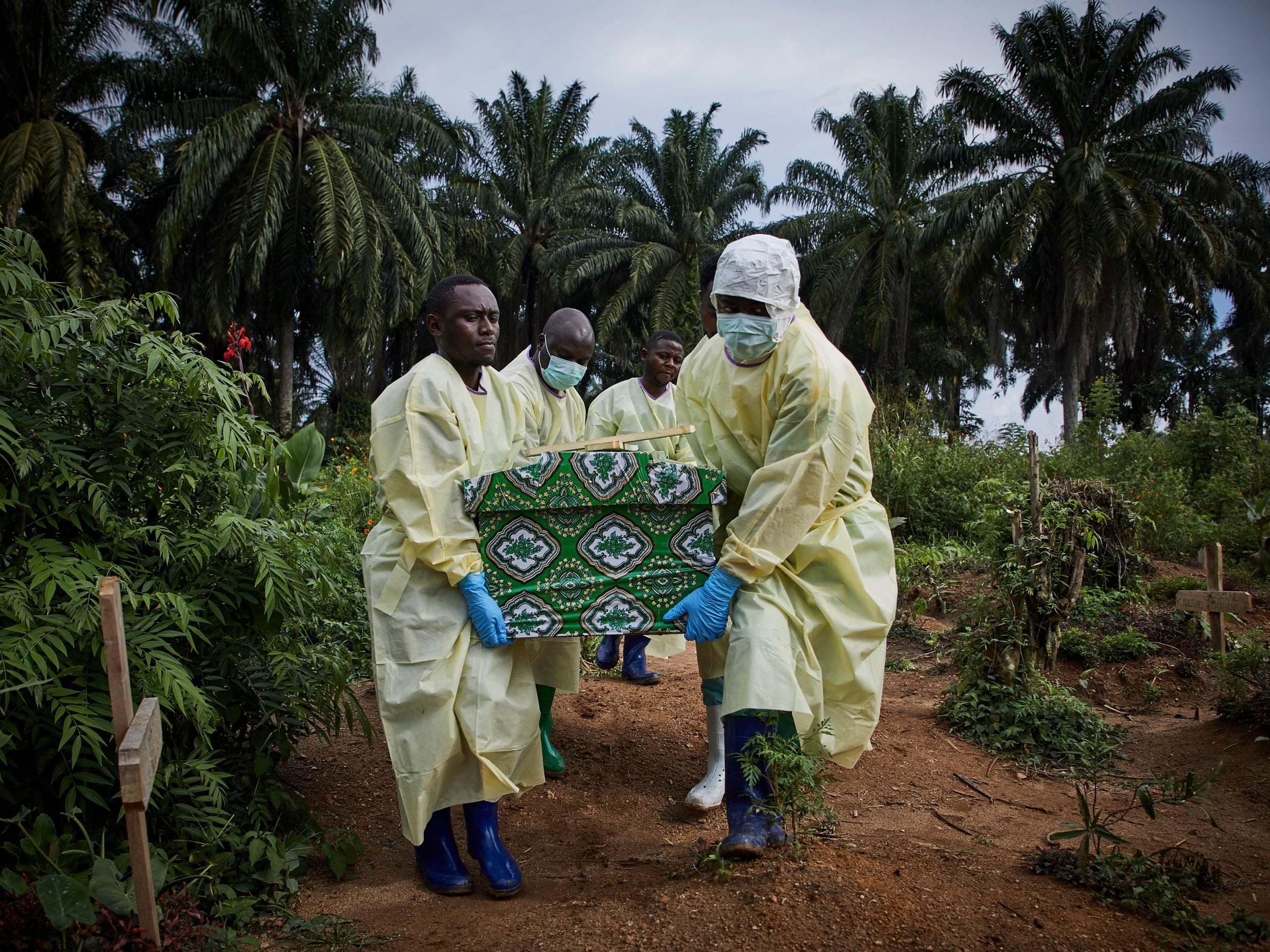
Zoonotic outbreaks have been proliferating in recent years. Other diseases transmitted from animals to humans include, among other things: ebola, bird flu, swine flu, the Zika virus, West Nile virus, Nipah virus, Rift Valley fever, HIV (initially), Middle East respiratory syndrome (Mers), and sudden acute respiratory syndrome (Sars). To an intercontinental list of nearly 70 known zoonoses, we must now add Covid-19 (Sars-CoV-2).
As Professor John Mackenzie and Professor David Smith claimed in a recent research paper for the journal Microbiology Australia: “Sars-CoV-2 is the seventh coronavirus known to infect humans, and the third zoonotic virus after Sars-CoV and Mers-CoV. Bats are the reservoir hosts of a number of additional novel coronaviruses, particularly Chinese horseshoe bats.
“This indicates that other potential cross-species events could occur in the future. There is therefore a strong reason to ban unregulated wild animal sales in Chinese wet markets, particularly exotic species, both from a public health perspective and for ecological reasons.”
While there are a host of drivers, these types of market are, admittedly, often crucibles of contamination. Cracking down on unsustainable wildlife commerce is one key way of mitigating zoonotic diseases. Beyond that, tackling the illegal trafficking of wildlife is a must. It is a billion-dollar industry and importing countries must step up to impose criminal sanctions and introduce stringent regulations.

A zero-tolerance approach, coupled with a respect for local politics and communities, could promote small-scale economies and allow biodiverse ecosystems to blossom.
Education and regulation must be the watchwords: the dangers of consuming wildlife are not always of paramount concern. However, local communities (ie traders, hunters, loggers) need to minimise risk, as much as the international community must be conscious of its colonial past in many of these regions. If infrastructure and the provision of biosecurity is lacking, the developed world must acknowledge its colonial-era liability in countries across Asia and Africa particularly.
Global food production already produces enough for the planet’s population of 8 billion – but the developing world wastes nearly a third of it.
There are populations who have to depend on the exploitation of nature for their livelihoods and alternatives must be provided for these people. Intervention from both the government and private sector will be vital and policymakers will have their work cut out for them.
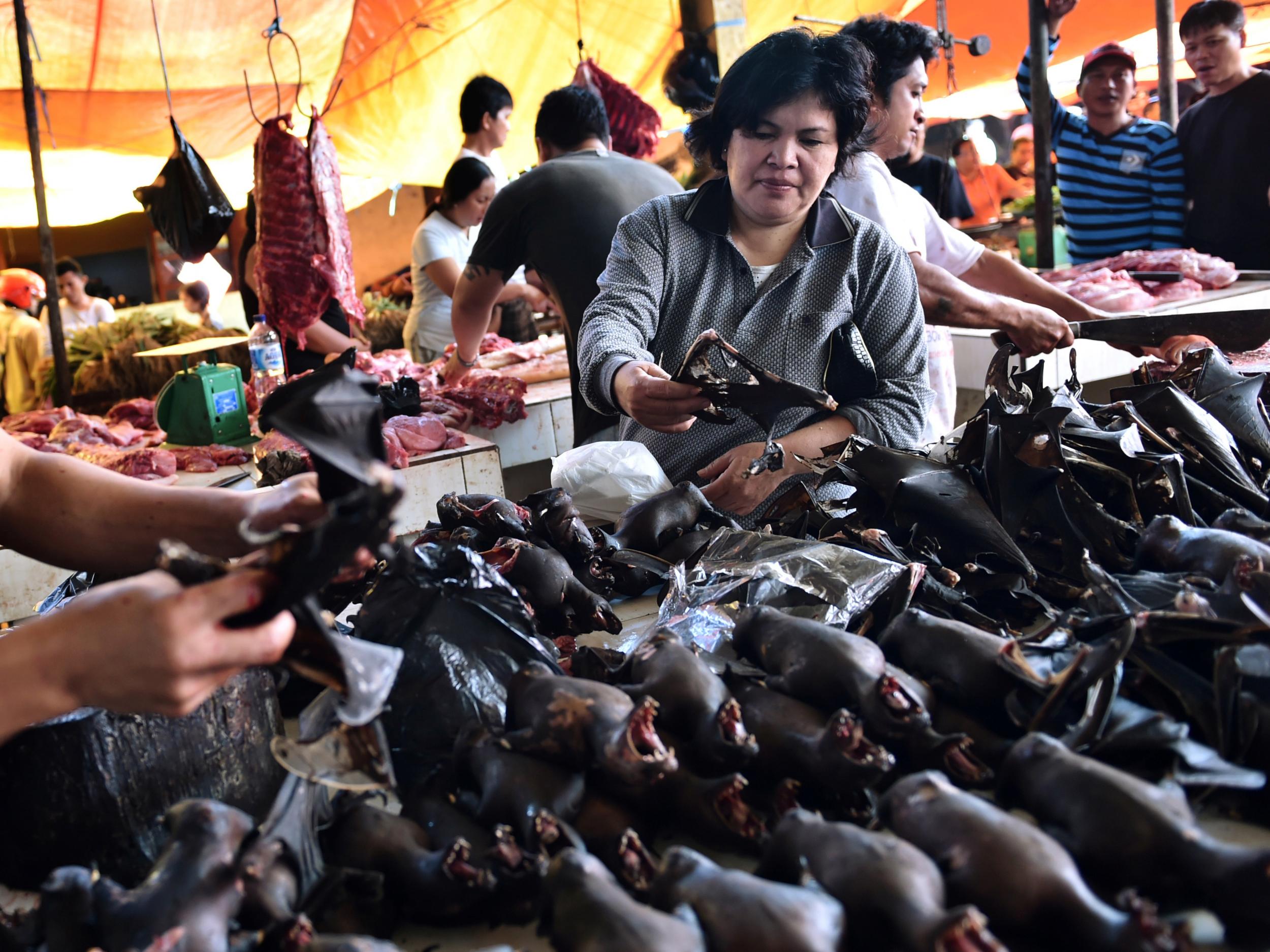
China has already reacted by issuing an embargo on the consumption and farming of wild animals and on wildlife markets at large. However, this temporary ban was the same reaction it had to the Sars outbreak in 2003.
Back then, initial public outcry gave way to regulatory complacency; Sars had huge ramifications for the economy, but the pervasive demands of capitalism saw business as usual come back into play. Will that simply happen again?
The way we prevent spillover events from turning into pandemics is to maintain strong health systems, where sick people can access diagnosis and care and public health systems have the funding to trace and isolate contacts as appropriate
Dr Enric Sala, a marine ecologist working with National Geographic’s Campaign For Nature, told The Independent: “I’m absolutely sure that there are going to be more diseases like this in future if we continue with our practices of destroying the natural world, deforestation and capturing wild animals as pets or for food and medicine.”
“Keeping the wild places intact, banning the hunting and traffic of wildlife species, many of which are endangered, would not only be practical but beneficial in terms of human health and economics,” Dr Sala claimed. “For governments and policymakers, it is going to be very clear that investment in protecting our natural world is the most cost-effective one they can make.”
In China, the wild meat industry is valued at $7.1bn and employs 1 million people, while the larger wildlife farming industry is worth a staggering $74bn. Outlawing a market that size would simply criminalise a large proportion of the Chinese population; therefore, any proposals would have to be considered sustainably and practically. Local cultural customs must be treated with sensitivity, not demonisation.
Behind the live animal economy, China is a huge market for endangered animals and the ornament and traditional medicine trades have continued to operate openly. That said, exploitation, illegal trade and trafficking, and the destruction of habitats and the environment are surely supranational crimes of rampant capitalism. Somewhere down the line, guilt lies with humanity universally – a pandemic affects all (pan) the people (dēmos).
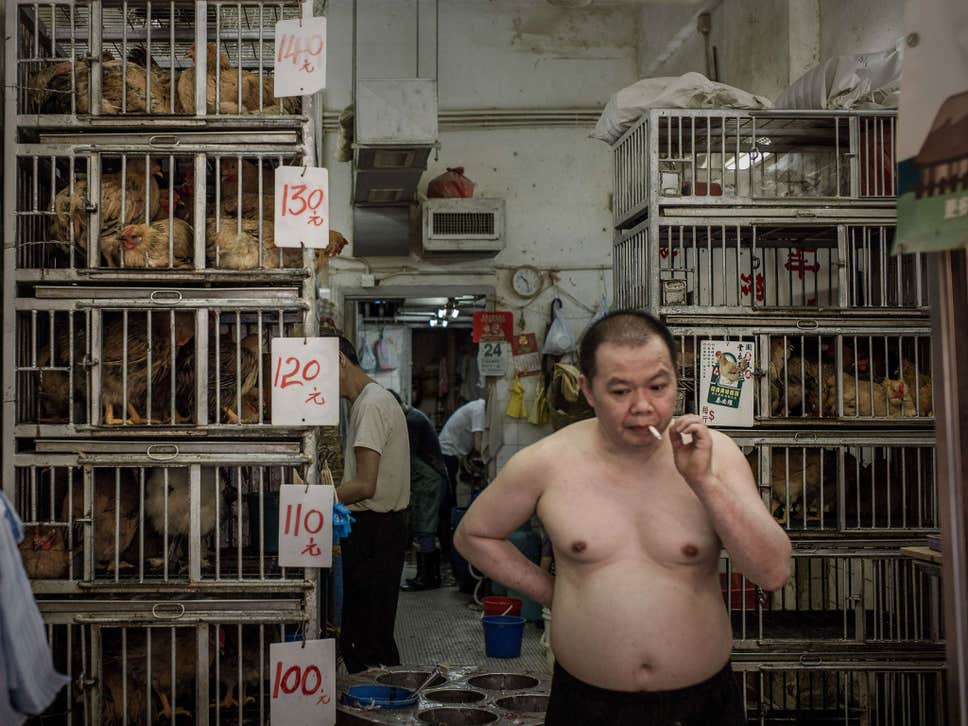
With sanguine aims, though, the World Conservation Society has joined others in recommending the immediate halt of all commercial trade in wildlife consumption to prevent future viral outbreaks. Whether Covid-19 will provide enough catalysis to enact widespread change remains moot. We can but hope. One thing is for sure: without change, the future looks bleak for pandemic prevention.
Vigilantly wary of eco-fascist rhetoric, this is not the first pandemic to impact humanity nor will it be the last if we persist in ignoring nature’s exhortations. Things cannot stay as they are and the health of the environment cannot continue being the collateral damage of industrial greed.
Ultimately, what starts as an individual action, becomes collective behaviour, and eventually leads to disastrous consequences for the health of humanity. A butterfly flaps its wings in Wuhan and an A&E ward in Watford closes its doors. This is chaos theory rather than imminent eschatology, sensitive interconnectivity rather than a fanatic belief in the “end of days”.
Equally, the executive director of the UN Environment Programme, Inger Andersen, said: “There are too many pressures at the same time on our natural systems and something has to give. We are intimately interconnected with nature, whether we like it or not. If we don’t take care of nature, we can’t take care of ourselves. And as we hurtle towards a population of 10 billion people on this planet, we need to go into this future armed with nature as our strongest ally.”
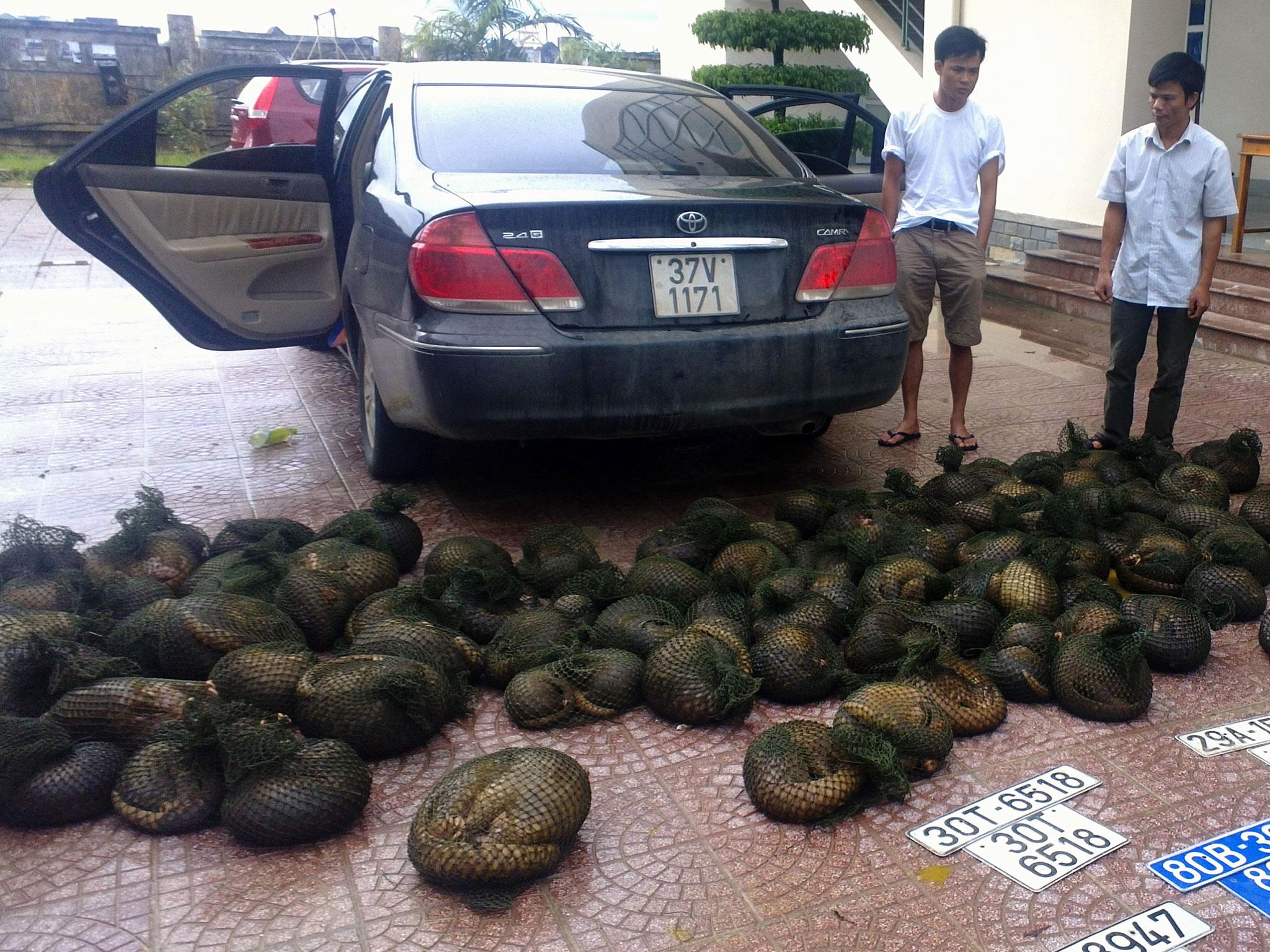
Her advice is the expected response to the overwhelming strain humans are placing on the natural world, pushing it to the limits and beyond with ruinous repercussions.
To stem the tide of further pandemic outbreaks, global heating and exploitative destruction of the environment for human gain must be brought to a halt. Discontinuing live animal markets where possible and extinguishing the black market trade of wildlife around the world are also high priorities.
I’m absolutely sure that there are going to be more diseases like this in future if we continue with our practices of destroying the natural world, deforestation and capturing wild animals as pets or for food and medicine
But the world’s prime priority is to mitigate the impact of Covid-19 and protect people. Long term this will have to involve combatting practices inimical to habitat and biodiversity loss. Some have suggested that fiscal rescue packages, necessitated by the pandemic, present the ideal opportunity for environmentally conscious, low-carbon behaviour by state actors.
There may never be another occasion where the state has such a powerful presence within the neoliberal economic system. Would this not be timely opportunity to act responsibly and recalibrate processes for the health of future generations?
The onus is on governments to support people’s livelihoods, but this should be done with green, environmentally sustainable policies in mind. While the deadly threat of Covid-19 is on our doorstep, the danger inherent to the climate emergency remains a perennial risk to our daily lives too.
The hope would be that the drastic measures already being enacted in lockdown scenarios might help global societies to be more acquiescent to the changes required for a low-carbon future.
While there are no silver linings to be taken from this catastrophe, the cascading transformations produced by social distancing, self-isolation and the cessation of industry, travel and business, have produced certain corollaries.
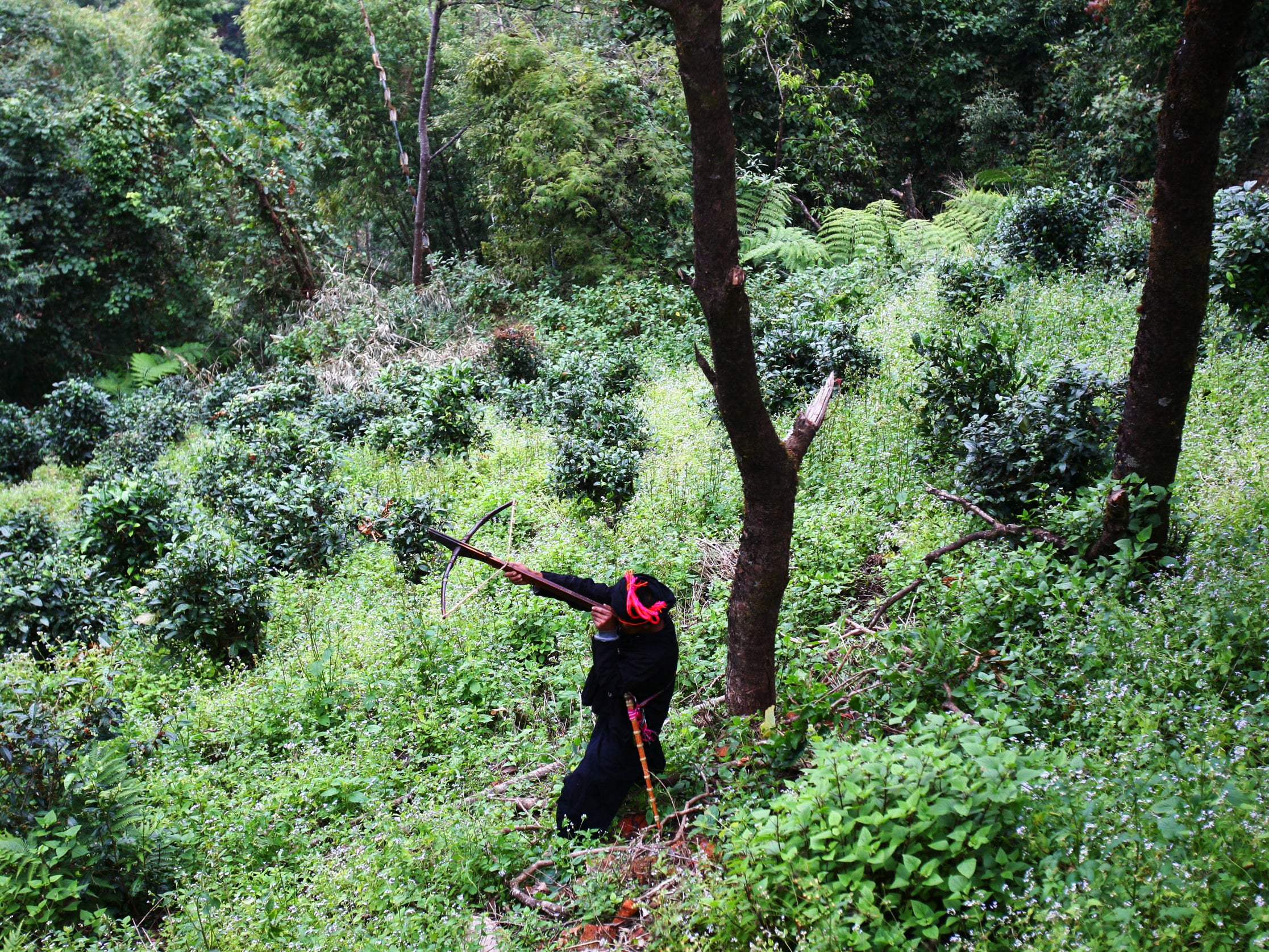
Travel bans, grounded flights, international restrictions of movement, and the halt of human industrial activity have all contributed to a substantial drop in global air pollution levels. Rush hour has screeched to a halt. Carbon dioxide and nitrogen oxide emissions have also fallen drastically as energy and transport-related gases are concomitantly reduced.
There is nothing to celebrate about the spread of Covid-19. Any positive externalities will have come at a woeful cost. But environmental benefits might still offer insight into how adaptations of human behaviour can alter carbon emissions and protect planetary health.
If we refuse to take judicious steps in response to the crisis of Covid-19, we risk emerging from the other side of this outbreak traumatised both epidemiologically and ecologically. From a climate crisis to a pandemic one, we are faced with a double bind.
The COP26 UN climate change conference, set to take place in Glasgow in November, has been postponed due to the pandemic. With a new unspecified date set for 2021, there will be plenty to discuss and a wealth of time to consider initial policies as well as critical responses to Covid-19.
UN climate change chief Patricia Espinosa told The Independent: “Soon, economies will restart. This is a chance for nations to recover better, to include the most vulnerable in those plans, and a chance to shape the 21st century economy in ways that are clean, green, healthy, just, safe and more resilient.
“In the meantime, we continue to support and to urge nations to significantly boost climate ambition in line with the Paris Agreement.”
In light of yet another emergency, we must try to simultaneously tackle the immediate issues engendered by Covid-19 while also maintaining the long-game approach of combating the climate crisis and the destruction of ecosystems. Surely now is the time to dovetail our crisis responses and enable optimum outcomes for society, the economy, and the environment?
Coronaviruses – so named for a likeness to the sun’s plasmatic crown when viewed under electron microscope – should teach us the Icarian warning: we have flown too close to the sun.
The Covid-19 pandemic is not necessarily some apocalyptic revenge of nature, but it is a warning shot from the world around us that things cannot continue as they are. If we refuse to look after nature, we cannot expect nature to look after us.
Join our commenting forum
Join thought-provoking conversations, follow other Independent readers and see their replies
Comments